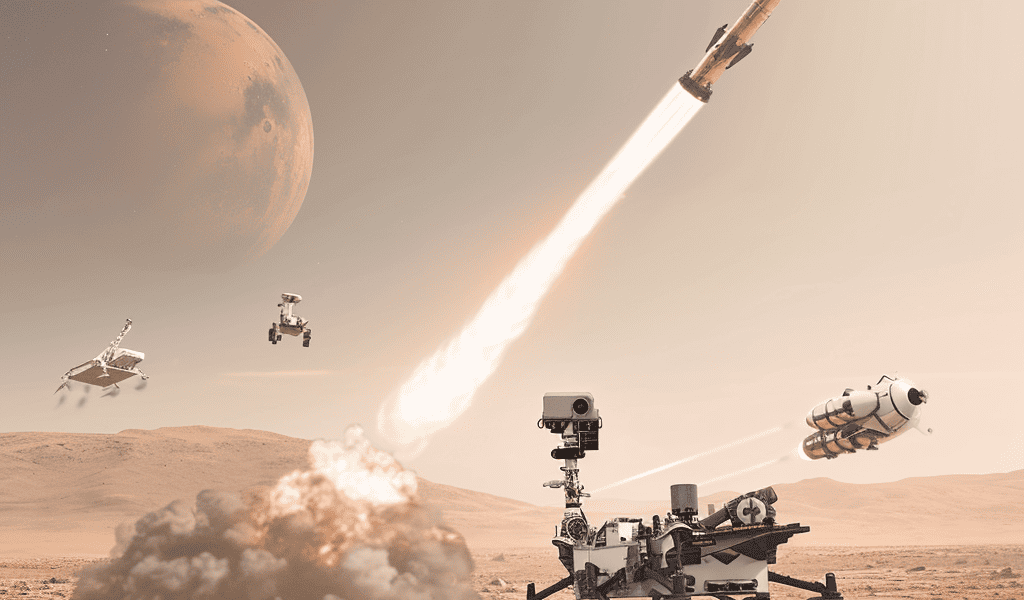NASA’s ambitious Mars Sample Return program, a collaborative effort with the European Space Agency (ESA), is facing significant challenges, with budget overruns and schedule delays threatening its success. The program, which aims to retrieve and analyze samples from the Red Planet, has been described as a ‘must-do’ by many planetary scientists. However, a recent independent review board (IRB) assessment revealed staggering cost overruns, estimating the project to be billions of dollars over budget.
The IRB report, released in September, indicated that the current form of the Mars Sample Return (MSR) program could cost between $8 billion and $11 billion, far exceeding the recommended budgetary limits. Furthermore, the board expressed serious doubts about the readiness of vital MSR elements for the planned launches in 2027 and 2028, as well as the projected Earth return in 2033.
The complexity of MSR’s architecture has been identified as a major factor contributing to the exorbitant costs and delays. The program involves a NASA-built lander housing a sample-return rocket and a robotic arm provided by ESA. The lander is intended to touch down near the Perseverance rover, which has been collecting and depositing carefully selected samples from its explorations in Jezero Crater, an ancient river delta on Mars.
The plan involves the collection and storage of samples by the Perseverance rover or potentially by newly developed flying drones, which would then be loaded into the rocket. The rocket would launch into Mars’ orbit and rendezvous with an ESA-supplied spacecraft for the journey back to Earth. Upon re-entry, the samples would be recovered at the Utah Test and Training Range before being transported to a specialized facility for further analysis.
In response to the challenges, NASA has initiated a programmatic overhaul to address the budget overruns and schedule delays. The future of the MSR initiative remains uncertain, with lawmakers considering the possibility of canceling the project altogether. The ambitious goal of bringing Martian samples back to Earth for scientific study hangs in the balance, as NASA and its international partners grapple with the formidable obstacles facing the Mars Sample Return program.





